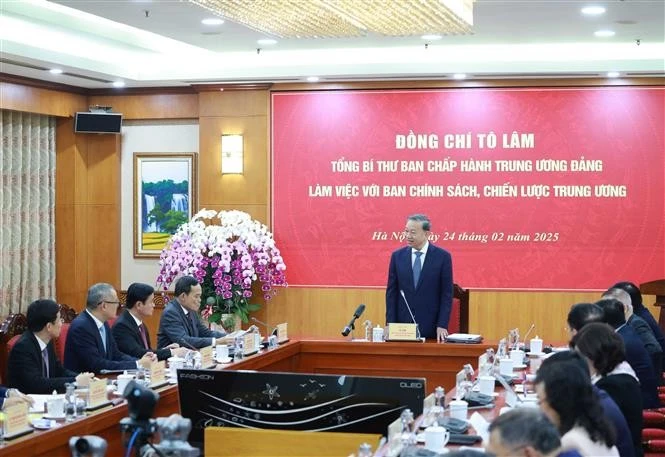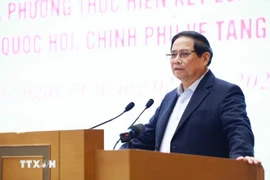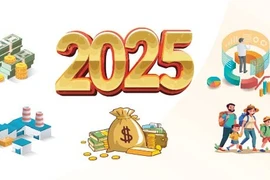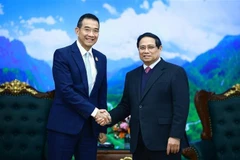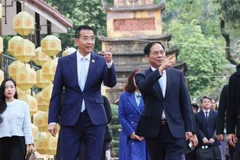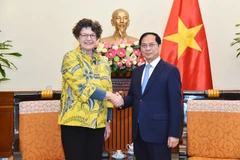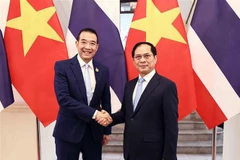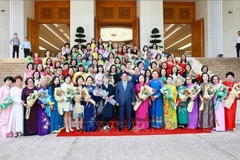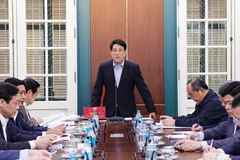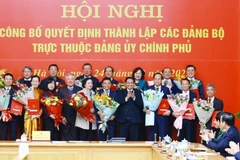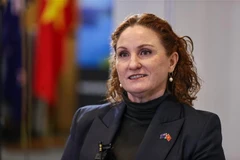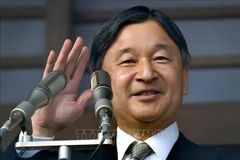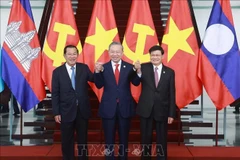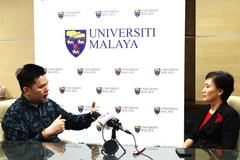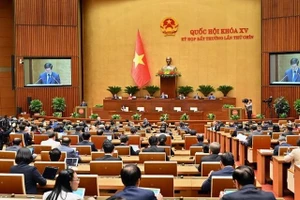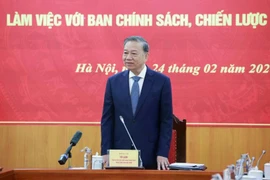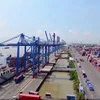Hanoi (VNA) - Party General Secretary To Lam on February 24 highlighted the need for policies and mechanisms to encourage all people and all economic sectors to participate in socio-economic development.
Addressing a working session with the Party Central Committee’s Commission for Policies and Strategies on the growth target of at least 8% set for 2025 to lay a solid foundation for double-digit rates in the following years, Lam appreciated the contribution of candid, insightful, and valuable ideas of economists and representatives from ministries and sectors, which have helped the Party and Government make strategic decisions to achieve the goal of sustainable development.
He suggested several specific areas for the commission, relevant ministries, sectors, and economists to continue researching, stressing that priority should be given to promoting economic development from both the supply and demand sides, accelerating the removal of barriers and bottlenecks hindering economic growth, and paying attention to the private sector.
To promote supply-related reforms, Lam emphasised the need to continue institutional reforms and improve the business environment, by reducing administrative procedure processing duration by at least 30%, cutting business costs by at least 30%, and eliminate at least 30% of unnecessary business conditions. The goal is for Vietnam to rank among the top three in ASEAN in terms of investment environment within the next 2–3 years.
He suggested the bold application of specialised legal frameworks, as the country’s legal system still lags behind the rapid development of the digital economy, innovation, and international integration, particularly in areas such as financial technology (fintech), artificial intelligence (AI), platform economy, e-commerce, and special economic zones. He urged legal frameworks for controlled piloting of emerging technology sectors and others for special economic and technological zones, special tax incentive mechanisms and unique ones for solving commercial disputes within such zones.
More efforts are needed to complete the development of a high-quality and synchronised urban infrastructure system, establish a national digital map system for planning and land pricing; and set up a National Housing Fund to develop affordable houses in major cities, he noted.
It is also important to implement open financial policies for international financial centre models; create a duty-free port model to transform Vietnam into a major logistics hub; introduce a National Investment Single Window to facilitate rapid entry of foreign investors into Vietnam; promote science, technology, and innovation development; and thoroughly address air pollution in Hanoi and Ho Chi Minh City, he stressed.
The Party chief emphasised the need to carry out talent attraction policies and special incentives for officials and civil servants with outstanding performance; continue improving the state organisational apparatus, including mechanisms for decentralisation and delegation of authority; and focus on addressing the challenges of an aging population.
Promoting economic growth on the demand side, the Party General Secretary highlighted the importance of increasing investment, including expanding government investment in the country's strategic and fundamental infrastructure system, and promoting private investment through creating a favourable, transparent, safe and low-cost investment environment, with easy access to credit capital.
It is also essential to promote domestic consumption, as it can generate sustainable GDP growth, and increase net exports, Lam stated, suggesting developing the agricultural economy instead of purely agricultural production, industrialising agriculture, adjusting land use policies to facilitate land accumulation, and encouraging the pilot implementation of new forms of cooperation in agriculture.
Regarding some specific measures to promote growth from the demand side, the top leader pointed out that it is necessary to implement an expanionary fiscal policy, a flexible monetary policy, and prudent monetary easing.
For the management of digital currencies, he emphasised that there must be no delays, no missed opportunities, and no creation of gaps or isolation from new forms of finance and modern transaction methods./.
